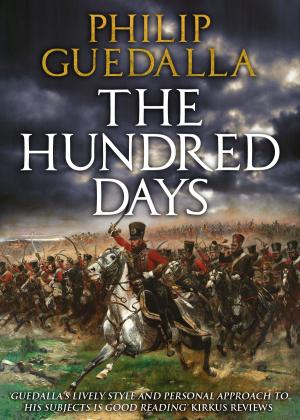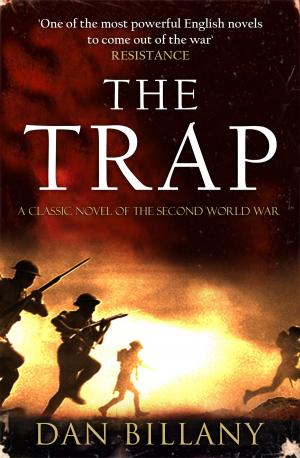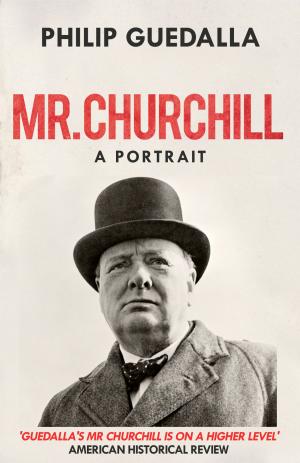The Irish Guards in the Great War: The Second Battalion
Nonfiction, History, Military, World War I, Modern, 20th Century, Biography & Memoir, Historical| Author: | Rudyard Kipling | ISBN: | 1230000555715 |
| Publisher: | Endeavour Press | Publication: | July 16, 2015 |
| Imprint: | Language: | English |
| Author: | Rudyard Kipling |
| ISBN: | 1230000555715 |
| Publisher: | Endeavour Press |
| Publication: | July 16, 2015 |
| Imprint: | |
| Language: | English |
The greatest of all wars.
As told by one of England's greatest poets.
'The Irish Guards In The Great War' is a classic of military history - Rudyard Kipling's memorable two volume account of how one regiment fought from 1914-1918.
This e-book edition features an introduction by the leading military historian Patrick Bishop.
In 1915, on the third day of the Battle of Loos, Kipling’s beloved son John was shot in the head and killed.
John had initially been rejected when he volunteered for service and it was only through Kipling’s intervention with an old friend, Lord Roberts, that John was able to join up with the Irish Guards.
In John’s memory Kipling accepted an invitation from the Irish Guards to write the official account of their experiences in the First World War.
The result is a classic of military history - a book that is all the more powerful for the deliberate spareness of Kipling's style and the tightness of the narrative focus.
It is a book that takes the reader right into the brutal reality of life and death in the trenches - told through the exploits and tribulations of the Irish Guards.
Kipling writes from the point of view of the battalions, using extracts from the Regimental Diaries, supplemented by private letters and documents and first-hand tales of the the men and their actions.
Instead of attempting a broad and balanced narrative in the traditional style of official regimental historians, Kipling decided to stick to matters which directly touched the men’s lives.
The result is a tale of courage and fortitude, the story of a regiment that endured terrible losses, but which also took the fight to the enemy, and never flagged in its will to win, nor lost sight of its own moral values even in the midst of a terrible war.
The First Volume of Kipling's The Irish Guards In The Great War is also published by Endeavour Press.
Rudyard Kipling was a poet and novelist best-know for his tales of British soldiers in India as well as children's classics such as 'The Jungle Book'. In 1907, he became the first English winner of the Nobel Prize for Literature.
Patrick Bishop is a journalist and author. His books include 'Bomber Boys: Fighting Back 1940-1945' and 'Target Tirpitz'.
Endeavour Press is the UK's leading independent digital publisher.
The greatest of all wars.
As told by one of England's greatest poets.
'The Irish Guards In The Great War' is a classic of military history - Rudyard Kipling's memorable two volume account of how one regiment fought from 1914-1918.
This e-book edition features an introduction by the leading military historian Patrick Bishop.
In 1915, on the third day of the Battle of Loos, Kipling’s beloved son John was shot in the head and killed.
John had initially been rejected when he volunteered for service and it was only through Kipling’s intervention with an old friend, Lord Roberts, that John was able to join up with the Irish Guards.
In John’s memory Kipling accepted an invitation from the Irish Guards to write the official account of their experiences in the First World War.
The result is a classic of military history - a book that is all the more powerful for the deliberate spareness of Kipling's style and the tightness of the narrative focus.
It is a book that takes the reader right into the brutal reality of life and death in the trenches - told through the exploits and tribulations of the Irish Guards.
Kipling writes from the point of view of the battalions, using extracts from the Regimental Diaries, supplemented by private letters and documents and first-hand tales of the the men and their actions.
Instead of attempting a broad and balanced narrative in the traditional style of official regimental historians, Kipling decided to stick to matters which directly touched the men’s lives.
The result is a tale of courage and fortitude, the story of a regiment that endured terrible losses, but which also took the fight to the enemy, and never flagged in its will to win, nor lost sight of its own moral values even in the midst of a terrible war.
The First Volume of Kipling's The Irish Guards In The Great War is also published by Endeavour Press.
Rudyard Kipling was a poet and novelist best-know for his tales of British soldiers in India as well as children's classics such as 'The Jungle Book'. In 1907, he became the first English winner of the Nobel Prize for Literature.
Patrick Bishop is a journalist and author. His books include 'Bomber Boys: Fighting Back 1940-1945' and 'Target Tirpitz'.
Endeavour Press is the UK's leading independent digital publisher.















